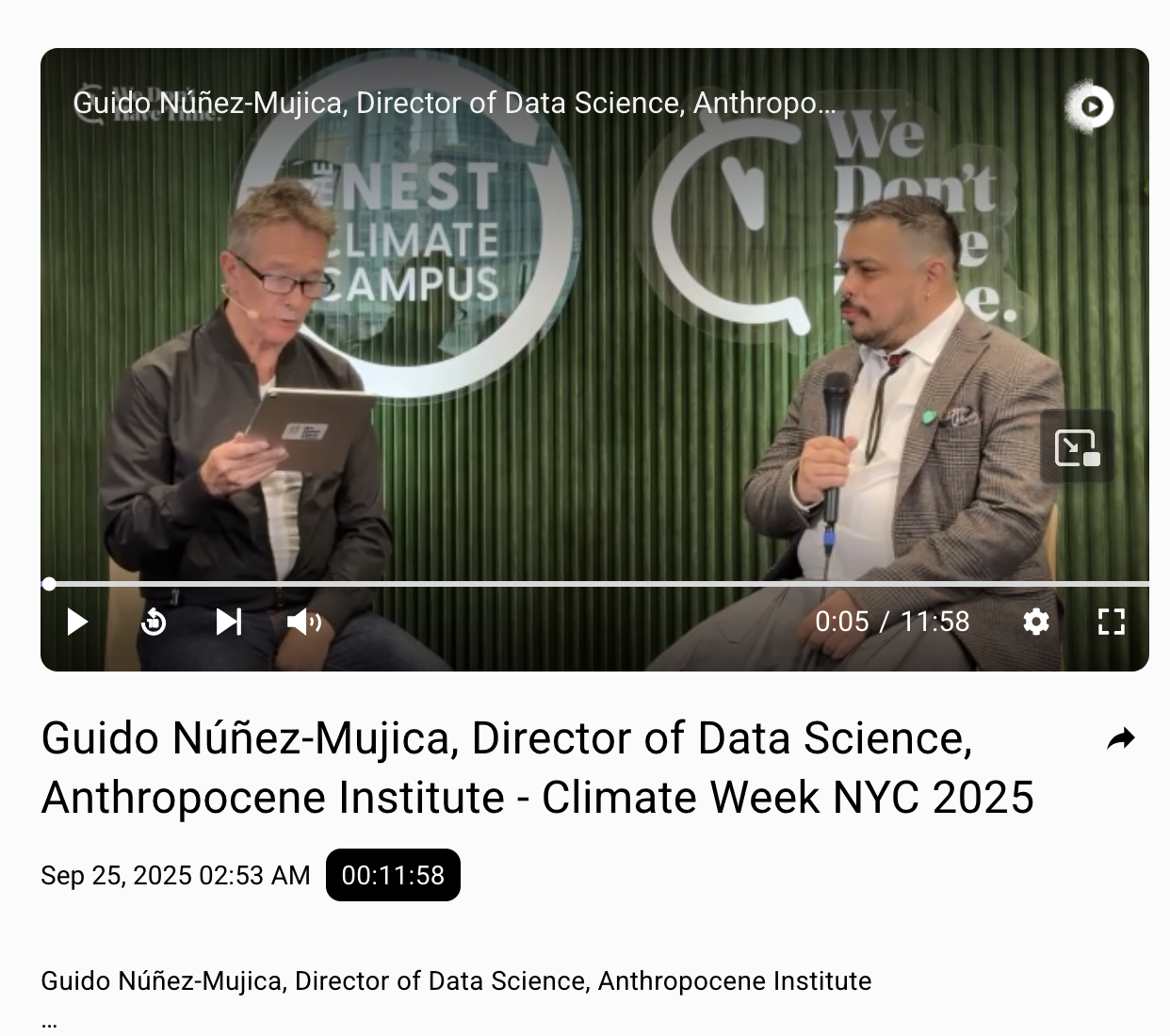
Climate Week NYC — September 24, 2025 — Today at New York Climate Week’s Nuclear Symposium 2025, hosted by Nuclear New York, Guido Núñez-Mujica, Director of Data Science at the Anthropocene Institute, joined leaders from across the nuclear and finance sectors for the panel “Innovating Finance: De-risking Through New Models and Capital Stacks.”
Guido shared the stage with Charlie Penner (Ananym Capital Management), Matthew Barry (Nano Nuclear), Simon Irish (Terrestrial Energy), and Brianna Lazerwitz (Nuclear New York). Together, the group explored how new financing models can unlock next-generation nuclear and accelerate global decarbonization.
Núñez-Mujica began by reframing the energy and climate challenge through a global development lens. The bulk of the world’s demographic and economic growth this century will occur in Africa, Southeast Asia, and South America — regions determined to industrialize, urbanize, and raise living standards.
“They are going to get electricity by whatever means they can,” Núñez-Mujica told the audience. “If it comes down to coal, they will use coal, because as bad as coal is, it’s better than not having electricity.”
He emphasized that to avoid a wave of fossil-driven industrialization, advanced nuclear must be affordable, accessible, and supported by smart policy frameworks that recognize its climate value.
Guido pointed to real-world examples that show how policy can accelerate or block clean energy adoption.
Yet nuclear remains excluded from major carbon standards that reward solar, wind, and nature-based solutions — a decision Guido called “arbitrary and unfair.”
“We have policy mechanisms that are proven and not experimental,” he said. “They’ve been used to reward conservation, solar, and wind — but nuclear is left out. That needs to change.”
Much of the panel’s conversation centered on financial innovation: how to help countries and developers build first-of-a-kind (FOAK) plants, which are more capital intensive, while laying the groundwork for cheaper nth-of-a-kind (NOAK) deployments.
“When countries like Ethiopia step up to bring clean baseload power to their people, they should be rewarded,” Núñez-Mujica said, citing Ethiopia’s recent announcement to pursue nuclear power. “Recognizing nuclear in carbon markets is one of the simplest, most powerful ways to de-risk and accelerate this transition.”
The panel underscored a truth too often missing in climate finance conversations: nuclear energy is essential for equitable decarbonization. Without policy tools like carbon credit eligibility, many emerging economies will be forced back to coal, even as wealthier nations deploy advanced reactors to meet AI-driven and industrial energy demand.
By modernizing carbon markets and using new capital stacks to reduce FOAK risk, the world can scale nuclear faster — and give every country a fair path to clean, reliable power.
